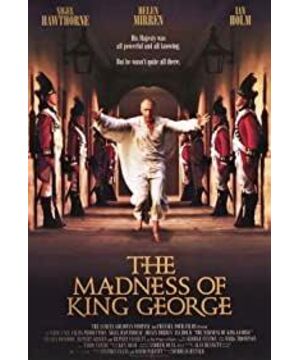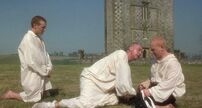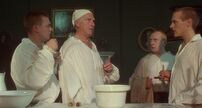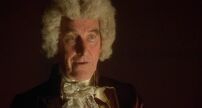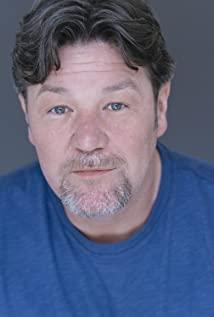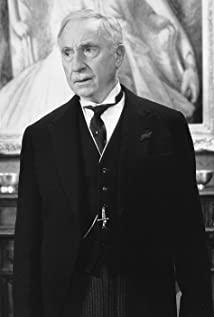George IV's only daughter, Princess Charlotte, Prince of Wales, died of illness shortly after her marriage to Prince Leopold of Saxe-Coburg (who would later become King of Belgium), leaving no heir to the English throne and King William IV without heir, His younger brother Edward, Duke of Kent, married Princess Victoria of Saxe-Coburg, sister of Prince Leopold, and widow of Grand Duke Leiningen of Emmerbach, and gave birth to Queen Victoria. Victoria and Princess Charlotte were equals, granddaughters of George III, but King Leopold was her uncle, and she later married Prince Albert, cousin of Saxe-Coburg-Gotha. When did the Germanic bloodline of the Hanoverian dynasty originate? Was it King Frederick V of Bavaria, whose daughter Princess Sophia married Ernst August, Duke of Brunswick-Lüneburg and Elector of Hanover, Born George I; George I married Sophia, Princess of Brunswick-Lüneburg, born George II; George II married Princess Caroline of Brandenburg-Ansbach, born Frederick, Prince of Wales, Philip Trey married Augusta, Princess of Saxe-Gotha, and gave birth to George III... In fact, the Germanic blood was already very strong.
Prince Frederick, known as "Poor Fred", did not please his parents. This is probably the origin of Queen Charlotte's saying in the film that "the son is always against the father", and his father George II called him "the greatest." villain that ever was born," his mother called him "the greatest ass, and the greatest beast in the whole world," while his sister Caroline hoped "he may die and that we may all go about with smiling faces and glad hearts”. But for George III Frederick was a much better father than his grandfather. He loves music and encourages his children to love music, selecting talented tutors to teach them Latin, French, German, history, mathematics and religion. As a student, George was lifeless, inattentive, often reticent and withdrawn, becoming stubborn and gloomy when he got angry, and still writing like a child at twenty. After Prince Frederick died of a cold in 1751, the conceited and flamboyant Earl of Butt, John Stuart, became a friend and adviser to the prince's widow, and when George succeeded his grandfather to the throne in 1760, he had to consult the Earl of Bute on everything. opinions, and even marital status.
In 1761 George married Charlotte of Mecklenburg-Strelitz, nicknamed "Monkeyface" for her wide mouth, flat nose and dark complexion, despite her plain appearance, Unpopular, George fulfilled his duties as a husband with the same sense of duty as the king, and together they raised 15 children. The eldest son, the future King George IV, was born 11 months after the wedding. Marriage and fatherhood helped George overcome his childhood insecurities. His passion for music and agricultural technology led to the creation of a model farm in Windsor, earning him the nickname "Farmer George". He also collected books and manuscripts, laying the foundations for what would become the British Museum. In addition, he collected paintings, coins, medals, clocks and ship models. Queen Charlotte also loves music, can play the clavichord, has attainments in history, and dabbles in botany, but she is especially good at needle and thread. Concerned about protecting his wife from outside influences and conspiracies, and insisting that she should devote her whole heart to him alone, George tries to prevent Charlotte from making friends in her new home country as much as possible. George likes quiet nights at home, and when the clock strikes 10, the royals go to bed. Their court was called the most boring court in all of Europe.
The film opens in 1788, five years after the Versailles Peace of Versailles, when the American colonies won full and complete independence from Britain in 1783, now known as the United States of America, and five years have passed since the arrogant 29-year-old William Pitt Jr. year. George's American policy was to force absolute obedience from the colonies, but the colonial people's declaration of independence on July 4, 1776, and later the Treaty of Versailles, hit George very hard, and he still remembers it despite the fact that several years have passed and it has become a fait accompli. The exact origin of George's madness is unknown, but in 1762 he suffered from a high fever, cough, rapid pulse, insomnia and weight loss, which lasted from January to July of that year; 1765 In January George again suffered "a ferocious typhoid," insomnia and chest pains, and when he felt better he was elated and witty, but he would be struck again by a new attack; earlier in 1766 He experienced another relapse but recovered shortly after. Apart from these ailments, his health record is unremarkable. The level of medicine in the 18th century was unparalleled, and the treatment of diseases was often accompanied by strong side effects. Perhaps George III used excessive or inappropriate drugs in the process of treating his diseases, resulting in sequelae such as arsenic poisoning. also possible. Like Billy's treatment of hereditary gout with high-alcohol port wine, which may have resulted in alcoholism and an early death.
George couldn't see things because of his madness, and the Prince of Wales, who had been under his father for a long time, was eager to launch a soft coup d'état, to seize power and change his unsatisfactory state by issuing a decree by the Parliament to act as the regent. In the House of Commons, Prime Minister William Pitt was also attacked by his main enemy, Charles Fox, who allied with the Prince of Wales in an attempt to bring down Billy's government by making the Prince of Wales regent. Because Billy's appointment as prime minister was proposed by George III, if the king falls, the prime minister and his cabinet will also be replaced. This crisis can only be relieved by the timely recovery of the king's madness.
Interestingly, judging from the setting in the film, the relationship between George and Billy is not so close and favored, and the rumors between James I and the Duke of Buckingham are out of the question. Billy is serious and serious to the point of being a bit rigid, cold as frost, and he is observant of the etiquette and meticulous when he sees George. Only when answering questions does he show such a temperate arrogance in an air of neither humble nor arrogant (great praise), even George said to Queen Charlotte In private conversations, he thought he was "cold," and said he "never stopped drinking," and that his father, William Pitt Sr., was a lunatic, and that he would "be as crazy as his father," but "not yet."
Because this is a satirical comedy, the show naturally ends after the rain and the weather, George returns to normal, Billy's government emerges from crisis, and the Prince of Wales and his ally Fox just perform a thankless scene when the king "temporarily withdraws" farce. After the dust settles, they are still in their respective positions, where to stand. But comedy or farce is a drama after all. George is alive, King Lear is dead, it's all drama. History is more absurd and pathetic than drama everywhere.
Finally, let's talk about the actor, Sir Nigel Hawthorne's George III is really a drama, it's not a drama at all, as if he is the tragic king, he is crazy, delirium, he is miserable, confused, humble and embarrassed, irritable Sharp and meaningful is also him. For such a role to him, it is really subtle and vivid.
Helen Mirren plays the unassuming Queen Charlotte, although she is not necessarily so unattractive, her clothes are simple, and naturally she is not as majestic, violent, and gorgeously dressed as the king in "Elizabeth I", but when I see her, I still think of the Queen sincerely .
Ian Holm plays Francis Willis, a senior pastor and doctor. Ian I'm more impressed with him should be the coach role in "Carriers of Fire".
Rupert Everett is the Prince of Wales. He has played a lot of such roles, and once he participates in costume dramas, he seems to be inseparable from members of the royal family, even if the holes in Stage Beauty are smeared brightly red, and the funny version of Charles II is better than monkey ass. After all, he is also a king, and in "Execution of the King" is Charles I. As eccentric as the Prince of Wales, with a fluffy wig, painted powder, a languid voice, neither smart nor hardworking, his parents called him "fat" and said he had nothing to do all day, but when you think about his situation, Depressed enough, his father's personality is stubborn and tough, he is in power, and there are many children in the family. He has been a prince of Wales for so many years. When his father finally died, he was 58 years old. Father, when his father was mad, he tried to conspire to launch a soft coup but failed, and wanted to beg for something to do. The king's response was to teach him "you just have to follow in my footsteps, put on a smile and wave to the crowd". At the end of the film, the whole family is harmonious and happy, but he is the only one who eats berberine like a mute, and is extremely depressed. The Prince of Wales is a shackle. After all, there are very few people in history who can be as high-spirited and loved as the Black Prince Edward during his tenure as Prince of Wales, and that requires talent, a powerful family genetic factor.
The baby-faced Rupert Graves plays Greville, the captain of the palace guard, a loyal and honest man. In the dark tide of the power struggle, he is the only one who sticks to his duty. Although he will inevitably make mistakes and be used, it can be completely concluded from his experience. What is "accompanying the king like a tiger", or his snobbish and slick colleague is right, the king should not be treated with "kindness", the king is just a tiger, sympathize with him and pity him when he is sick, and wait for him to recuperate. When he was in good spirits, he did not remember the benefits of his servants at all, because he felt that it was due.
Prime Minister William Pitt the Younger is played by Julian Wadham. Even if it's not out of a preference for Billy, I admit that I'm more likely to be attracted to this type of people in movies. Don't look innocent and have ambitions with their own interests. Abacus, but quite able to stick to principles to deal with the overall situation is more interesting characters. In fact, Julian's face is still somewhat similar to Billy in the portrait, and Billy in the portrait is also serious. The portraits of that era were more or less solemn like sculptures. Billy is said to have expressed his ambition to enter Parliament at the age of seven, and in August 1766 when his father Peter Sr. was made Earl of Chatham, Billy said: "I am glad that I am not the eldest son. I want to speak in the House of Commons like papa." At the age of 14 (1773) he wrote a tragedy, a political drama that was a model for the crisis of the Regent of 1788-89. I'm afraid he didn't even expect that the protagonist of the drama he wrote when he was a child would be played by himself when he grew up. In Great Britain between 1783 and 1806, no one would have been more competent to be Prime Minister.
View more about The Madness of King George reviews


